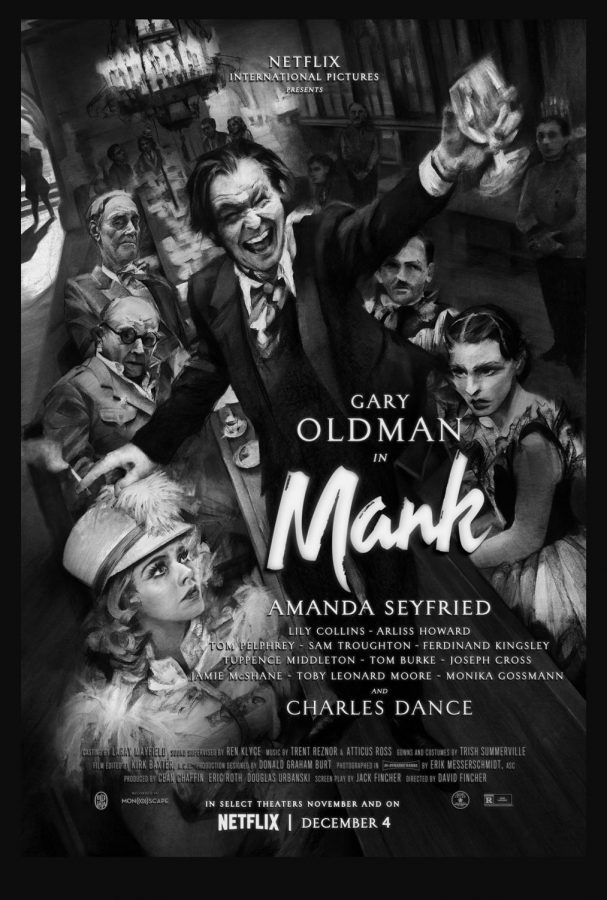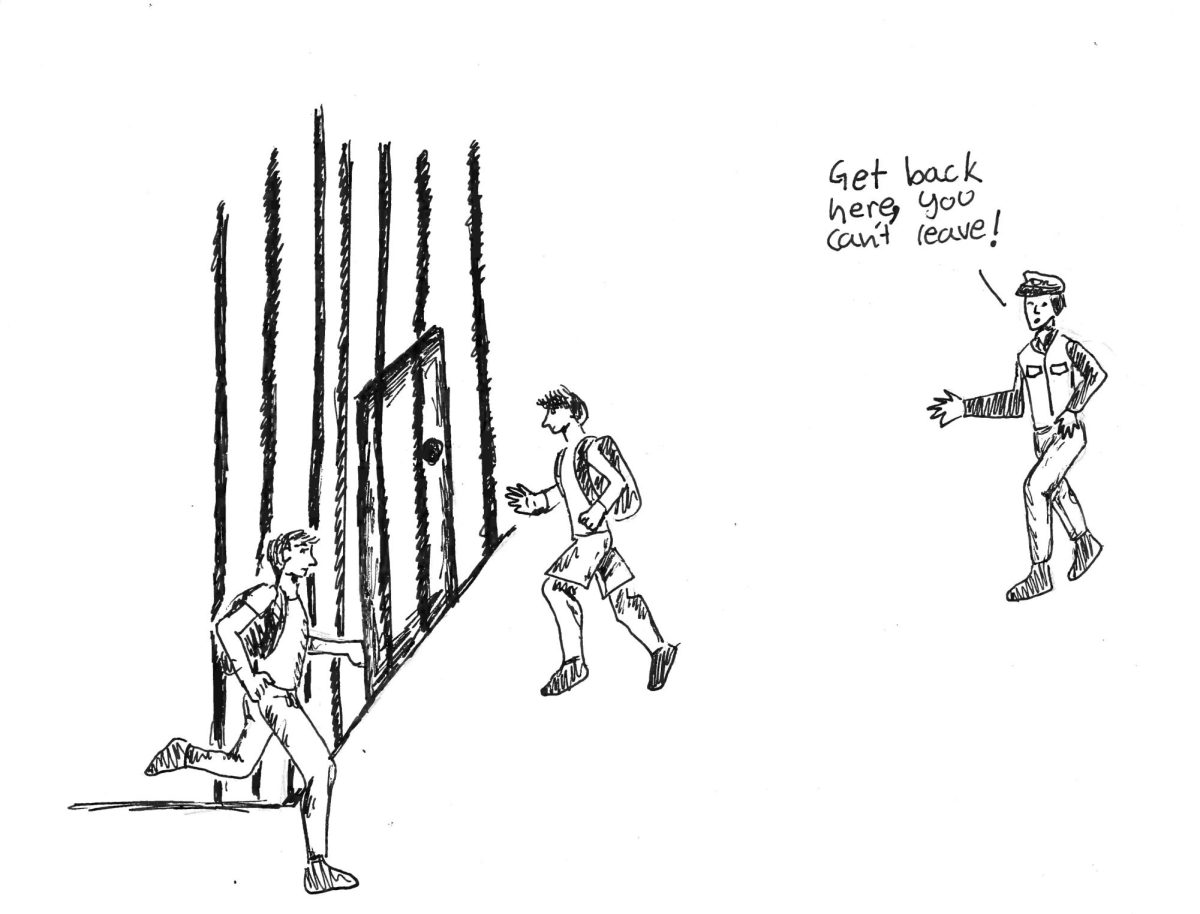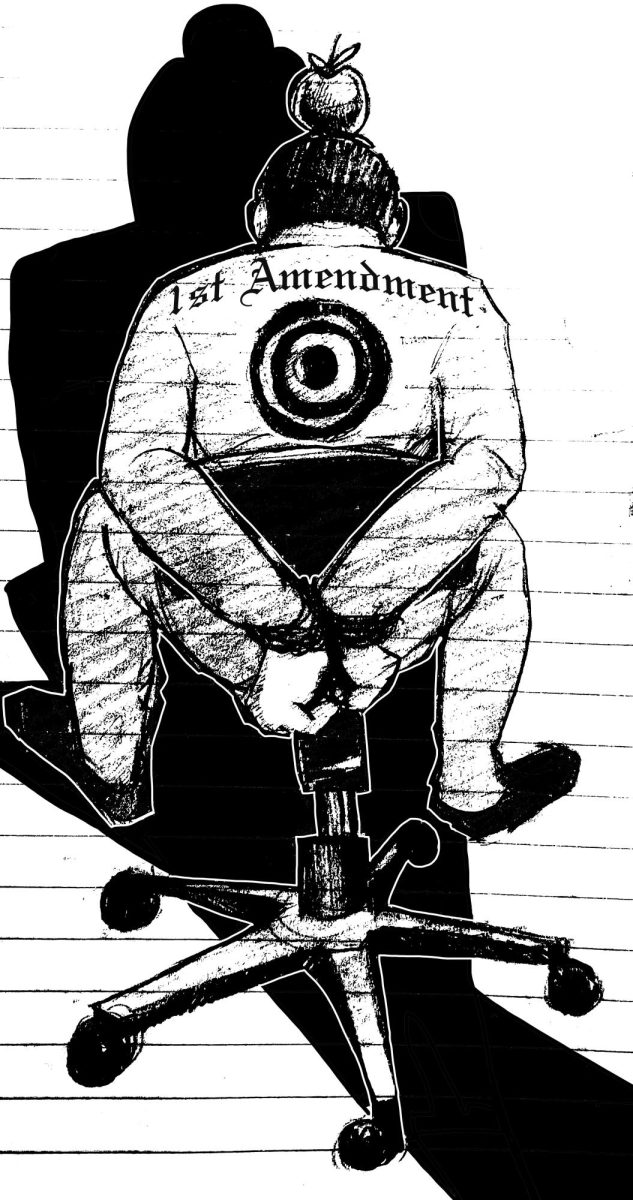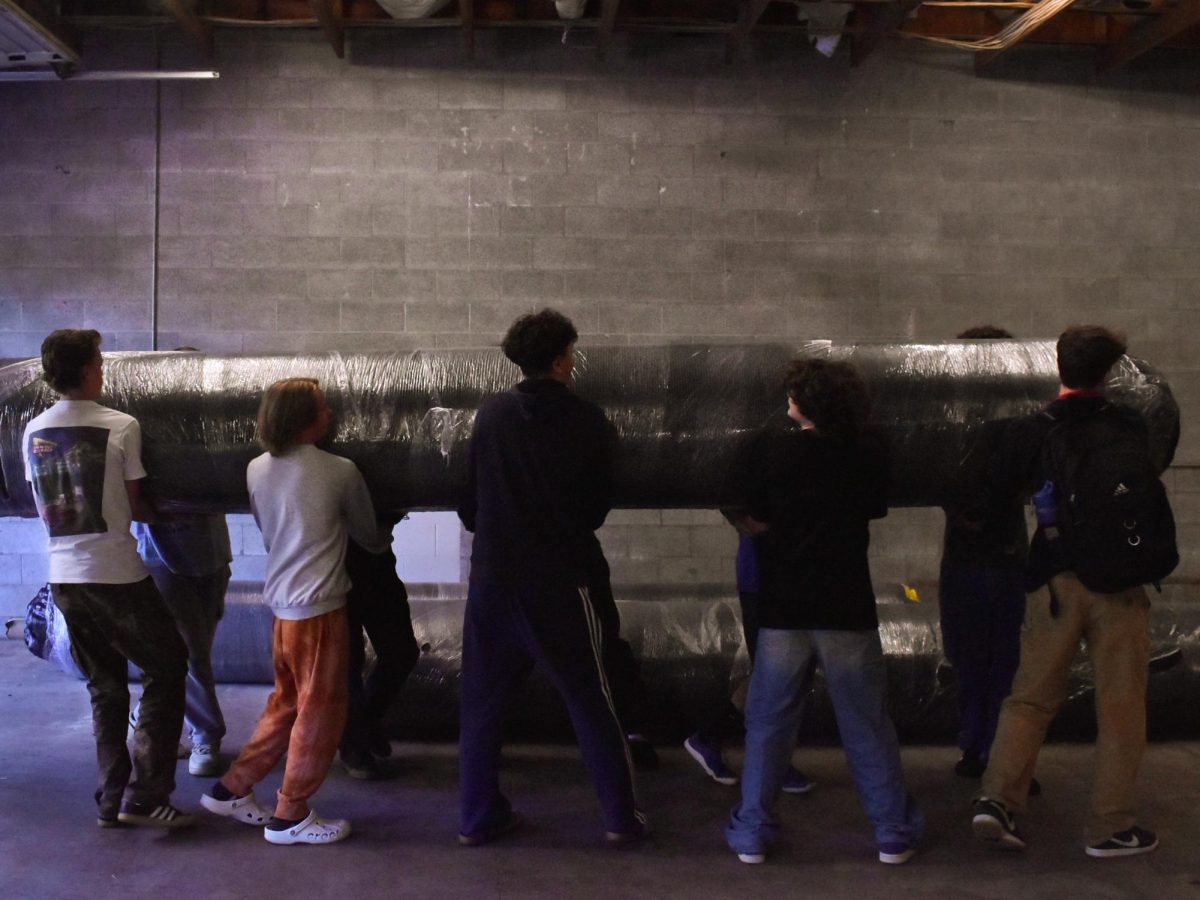Mank Review
December 11, 2020
Director David Fincher rarely disappoints with his films. Often steeped in dark atmosphere and cold emotions, his style is instantly recognizable and beloved by many. Since his 2014 film Gone Girl, Fincher has not directed a single picture making it his longest stretch of time between two of his films, but on Dec. 4, 2020, he came crashing back with his newest film Mank. Premiering on Netflix and select theaters, Mank follows screenwriter Herman J. Mankiewicz as he writes the script for the famous 1941 film Citizen Kane and reflects on his time in 1930s Hollywood.
This is in many ways a large departure from Fincher’s usual work as Mank is more of a love letter to old Hollywood filmmaking than it is a tale of darkness and mystery. While I watched the film, I found myself often comparing it to last year’s Once Upon A Time…in Hollywood, a film about filmmaking in LA during the ‘60s and ‘70s. Both films are nostalgic looks at the movie-making process of old, just in two different decades. Because of this, I think both movies could be a bit inaccessible to some, but I personally found Once Upon A Time…in Hollywood a bit more enjoyable than Mank. Mank is by no means a bad film, in fact on a technical level, it’s amazing, but I find that reflecting on it a few days after watching the film, it all comes across as a blur.
For film historians and those who have researched the politics of the ‘30s, this movie will be a blast. Other than some commentary that could be applied to today, Mank lives and breathes its dirty ‘30s setting. As many have already pointed out in other reviews, if it weren’t for the recognizable actors of our decade, you could be convinced this film was made in the time it takes place. This is the film’s strongest aspect as everything from the audio, picture quality, and even acting feels from another era. Anyone can turn a film black and white, but Fincher went above and beyond making every detail as similar as it would appear in the films of the golden age. There’s even a strange glow around the characters of the film similar to the glow seen around Humphrey Bogart in The Maltese Falcon. My favorite part of Fincher’s commitment to this old film style is the sound of the audio. The music, sound effects, and dialogue all have a “poppy” effect to it that makes it very believable that all the audio was recorded on tape or vinyl. As mentioned earlier, even the acting has a retro style to it as the actors play their characters in an exaggerated way that would be more familiar to the stage than the screen. This is not to say that the acting is bad in any way as in reality, the whole cast is stellar from the leads to the minor characters, the standouts being Amanda Seyfried, Charles Dance, and Lily Collins.
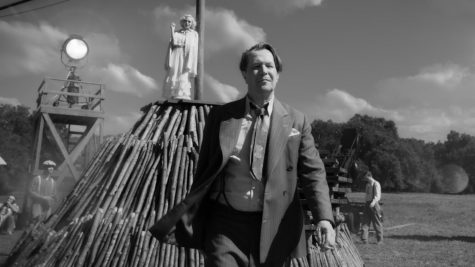
Unfortunately, while the film is amazing in just about every other part, the production is poor in the storytelling department. As I said, film and political historians will absolutely adore this film, but for someone like me who has a very base-level knowledge of the times, it felt a bit like watching a documentary for those who already know everything it’s about. This being said, the film wasn’t difficult to follow as I understood the stakes and circumstances of each scene. The problem for me was that much of the film was just characters talking about 1930s politics in rich LA. There’s no scene where a character outlines every campaign promise of the 1934 California gubernatorial election because in the story, all the characters already know that information. I would never want a scene like that because it would stick out like a sore thumb, but going into the film without knowing that information makes a lot of the dialogue sound just like gibberish to someone like me. I should add that the film does not have much of a plot as the majority of the movie is just flashbacks of Herman Mankiewicz getting drunk and doing stuff in 1930s Hollywood. Because of that, remembering the film now is more like remembering a series of highlights rather than an actual story. The best thing about the plot is being able to connect points of Herman Mankiewicz’s life to points in the life of the character Charles Foster Kane, the protagonist in the film Citizen Kane. This is of course the movie he is screenwriting in the film Mank, leading to the question of how much Citizen Kane was influenced by real life. Other than that, Mank lacks a story that is anywhere as interesting as the actual production of the film.
Mank is good, not great, but good. Some will love it and some will hate it, and to be honest, I see both sides. I enjoyed it from a filmmaking perspective, but I don’t see myself rewatching it anytime in the near future. If anything about the film somewhat interests you, I say give it a chance, but I wouldn’t be surprised if you turned it off before it’s over. Mank will certainly have its audience and receive lots of praise, all of which it probably deserves, but if you ask me, it’s just…good. It’s certainly no Citizen Kane.



